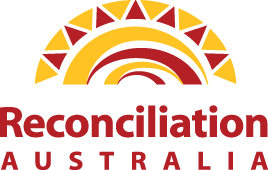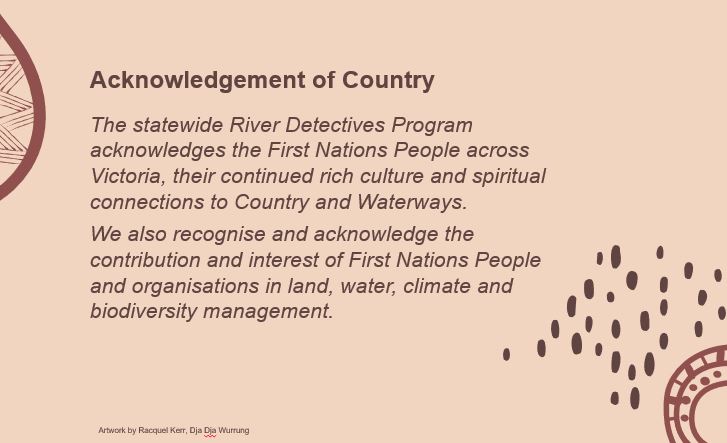Website
Culture Is Life website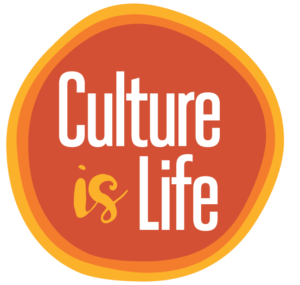
The website’s education page has teaching resources developed by a collective of First Nations educators and young people to inspire educators to creatively embed Aboriginal and Torres Strait Islander histories, peoples and cultures in their classrooms. Guides include teachers notes to accompany popular media such as the Back To Nature and Australian Wars documentaries on ABC iView.
|
Sustainable Farms – enhancing dams resources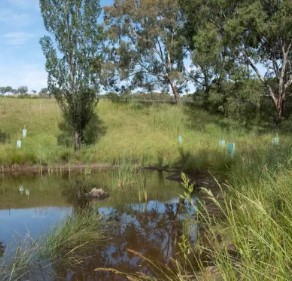
Dams are well-known features of farming landscapes. They are also valuable natural assets. ANU’s Sustainable Farms project works with farmers, land managers, NRM agencies, industry groups and Landcare towards a common goal: healthy farms, healthy farmers and healthy profits. They offer a range of great resources: a farm dam poster, life in a farm dam activity sheet, the Enhancing Farm Dams guide and the farm dam planting guide. For some great videos watch: Improving farm dams – a farmer’s perspective, life in a farm dam – after fire comes recovery and building a wildlife island on a farm dam. If constructing or renovating a dam, for the farm dams technical guide click here.
|
Food, Fibre and Agricultural Science eLearning Courses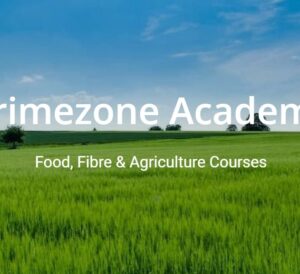
Primezone Academy offers a range of free primary and secondary courses on a variety of agricultural topics.
|
Australians Together website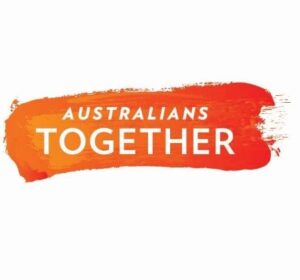
A portal for free F-10 resources created together with First Nations cultural collaborators, for professional learning and for articles/stories to learn more about our shared history.
|
Share Our Pride website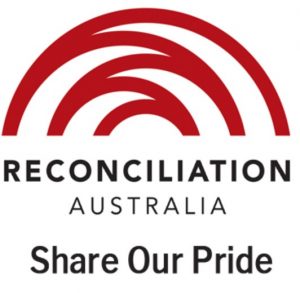
This website by Reconciliation Australia provides introductory cultural awareness training to give non-Indigenous people a glimpse into the lives and cultures of Australia’s First People. It has been put together for organisations to consider what they might do differently to build better relationships with Indigenous peoples to show respect for Indigenous Australians and to create opportunities for Indigenous peoples to help close the life expectancy gap and build a stronger Australia. The content is simple and presented in a very user-friendly, engaging format. Users can take the journey through each ‘chapter’ simply by scrolling down and clicking links or selected chapters/videos can be viewed. Note: Please preview content for its suitability to the age group you are teaching.
|
NAIDOC Week website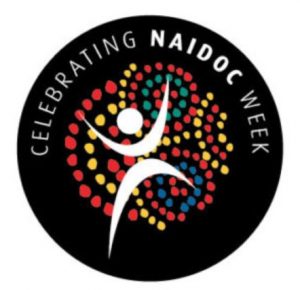
The learning resources available to all students through the NAIDOC website are invaluable for teachers and students. The NAIDOC teaching ideas developed by the National NAIDOC Committee relate directly to supporting teachers in addressing The Australian Curriculum: Aboriginal and Torres Strait Islander Histories and Culture cross-curriculum priority; with provision of content that can be used across multiple learning areas and stages/grades from Foundational Studies to Year 12. The teaching resources released each year for the annual theme provide Aboriginal and Torres Strait Islander perspectives for classrooms beyond the dates of NAIDOC Week each year.
|
Nest Boxes for Wildlife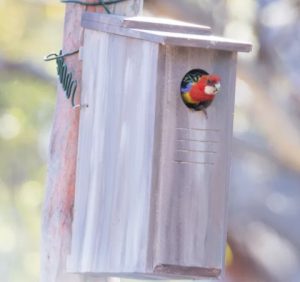
Use this website for all you need to know about nest boxes; nest box designs, installation tips and monitoring methods. Making and monitoring nest boxes is a great project for students and a fantastic way to enhance habitat at your waterway, school, home, local park, etc.
|
Backyard Buddies website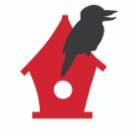
If you are looking to find out more about the native fauna and flora at your waterway, home, school, etc this website is a great place to start. ‘Explore‘ your own piece of wilderness by reading profiles about native birds, bugs/insects, mammals, frogs, reptiles and some plant families. Get busy with a project and ‘Create‘ buddy habitats for birds, bugs/insects, mammals, frogs, reptiles and plants. Use the tips to ‘Help‘ a backyard buddy.
|
Aussie Backyard Bird Count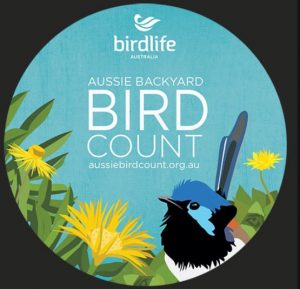
The Aussie Backyard Bird Count is an annual citizen-science event held in National Bird Week (October). It is a great way to connect with the birds in your backyard no matter where your backyard happens to be — a suburban backyard, a local park, a patch of forest, down by the beach, or the main street of town. You can use the App to do as many 20-minute surveys as you like over the week with the data collected assisting BirdLife Australia understand more about the birds that live where people live. Use the lesson plans to explore birdwatching at school. Check out an infographic of the 2020 results for some great maths stats.
|
Discover Ducks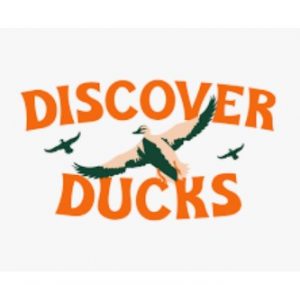
Did you know that Australia is home to 15 native duck species? Yet five in six Victorians can’t name a single one! The ‘Discover Ducks’ website wants to change this and build a nation of duck lovers who are passionate and knowledgeable about our native ducks. Head to this website to; learn about iconic Victorian duck species, learn how to care for ducks, use the duck detector guide to go duck spotting, use the duck detector map to find out where ducks have been spotted or add your own sighting, challenge yourself to the ‘know your ducks quiz’ or complete a fun survey to discover which duck you are.
|
North East Water education program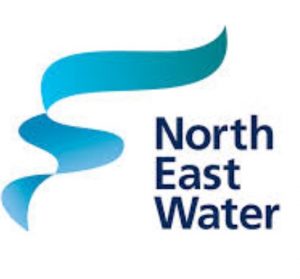
For schools in the North East CMA region, North East Water offer incursions, excursions and resources for students and teachers to educate about urban water, the water cycle and saving water.
|
Barwon Water education program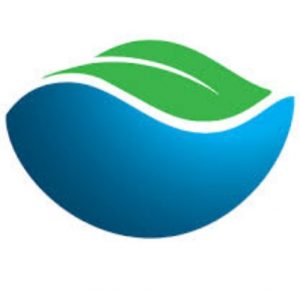
For schools in the Corangamite CMA region, Barwon Water offer a free comprehensive education program including water-related incursions, excursions and resources for early childhood to tertiary students. You can also sign up for their e-newsletters.
|
Central Highlands Water education program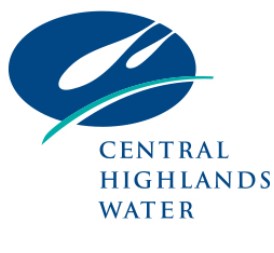
For schools in the south-western part of the north central CMA region and the northern part of the Corangamite CMA region, Central Highlands Water offer free education programs and learning materials for schools and community groups. Topics include; water (source to tap), water efficiency, choose Tap and recycled water and wastewater.
|
GWM Water education program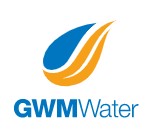
For schools in the Wimmera, GWM Water offers a range of water-based activities, experiments, fact sheets, puzzles and fun recipes specific to your region. They also encourage schools to enter the annual National Water Week poster competition.
|
Coliban Water Education website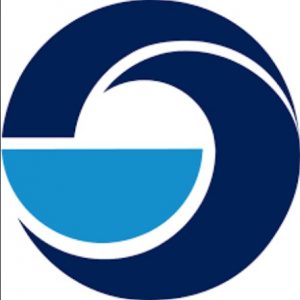
For schools in the north central region, Coliban Water offer incursions teach students about the value of water, how to use water wisely and wastewater management. They also provide free print and online teaching resources for use in kindergartens, primary and secondary schools. Sign up to their education newsletter to keep in touch with their latest news.
|
The Waterbug Shop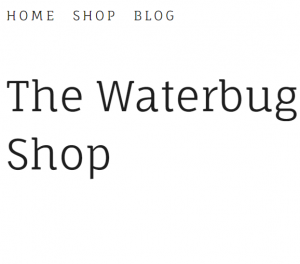
The Waterbug Shop was established as a better way for people to access equipment and resources for the sampling and identification of waterbugs.
|
North East CMA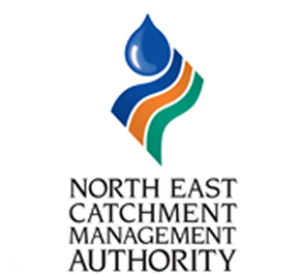
Find out what the North East CMA does and how they care for catchments in the region. Includes descriptions of the region and projects the CMA is undertaking to protect and enhance environmental values within the region. If you are in the North East CMA region you may also like to access educational support (urban water, water cycles, water conservation) from the water corporation in your specific location using this map. It will most likely be North East Water.
|
Melbourne Water education program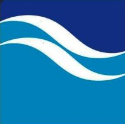
Find out what Melbourne Water does and how they care for catchments in the region. Includes a myriad of education resources covering frogs, litter, stormwater, catchments, waterways and more. Some are specific to the Melbourne area but many are relevant to all regions. If you are in the Melbourne Water area you may also like to access support from the water corporation in your specific location using this map. It will either be Yarra Valley Water, South East Water, City West Water or Westernport Water.
|
Corangamite CMA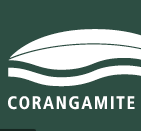
Find out what the Corangamite CMA does and how they care for catchments in the region. Includes descriptions of the region’s catchments and projects the CMA is undertaking to protect and enhance them. If you are in the Corangamite CMA region you may also like to access educational support (urban water, water cycles, water conservation) from the water corporation in your specific location using this map; Depending on your location it may either be Central Highlands Water or Barwon Water,
|
North Central CMA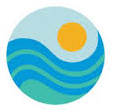
Find out what the North Central CMA does and how they care for catchments in the region. Includes great descriptions of rivers and wetlands in the region and projects the CMA is undertaking to protect and enhance them. If you are in the North Central CMA region you may also like to access educational support (urban water, water cycles, water conservation) from the water corporation in your specific location using this map; Depending on your location it may either be Coliban Water, Central Highlands Water, GWM Water or Lower Murray Water.
|
Wimmera CMA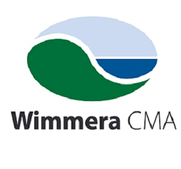
Find out what the Wimmera CMA does and how they care for catchments in the region. Includes great descriptions of rivers/streams and wetlands in the Wimmera CMA region. If you are in the Wimmera CMA region you may also like to access educational support (urban water, water cycles, water conservation) from the water corporation in your specific location using this map. It will most likely be GWM Water.
|
‘Birds in Backyards’ seasonal bird survey program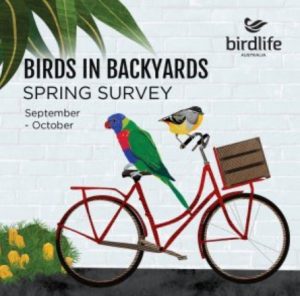
Get involved in seasonal bird surveys with Birdata, Birdlife Australia’s easy-to-use website and app. Both resources automatically give you a list of 30 birds from your region to help get you started – so you don’t need to be an expert to take part. Use this video to learn how to get started using the Birdata website to enter your results or, if you are a maths maniac, browse, filter, graph, analyse and compare bird data from anywhere in Australia. The App is a portable conservation tool allowing volunteers to leap into the colourful world of birdwatching and enter bird survey data via phones or tablets. You can also get involved in the Aussie Backyard Bird Count in October each year, a nationwide citizen-science event.
|
Wild Pollinator website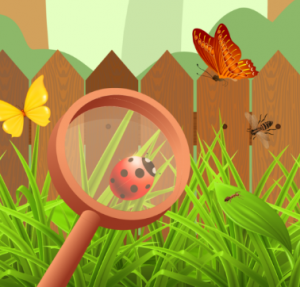
The Wild Pollinator Count gives you an opportunity to contribute to wild pollinator insect conservation in Australia. Twice a year (April and November) the community is invited to count wild pollinators in the local environment and help build a database on wild pollinator activity. You can join in by watching any flowering plant for just ten minutes sometime in the count weeks.
|
Kids Teaching Kids website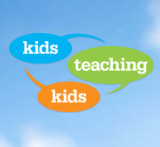
The Kids Teaching Kids Program raises awareness and drives action on local and global environmental issues, helping the next generation of leaders who will take collective responsibility for our future. By giving students the opportunity to present a workshop to others during Kids Teaching Kids Week or at one of the Kids Conferences, students see that they can have a positive impact on the world, starting in their own communities. You could consider having a group of students present at a KTK workshop or run a KTK- inspired event at your school with cross-age learning or by gathering with other non-River Detective schools.
|
Junior Rangers website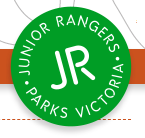
Parks Victoria’s Junior Rangers website is a great resource with activity sheets and booklets found at the ‘Make and Do’ link. Topics are wide-ranging but River Detective related content includes; a river activity Booklet, pest animals, river red gums, pest plants and weeds, platypus and general activities related to nature studies that can be done at school, in backyards or at your water testing site.
|
ABC Education website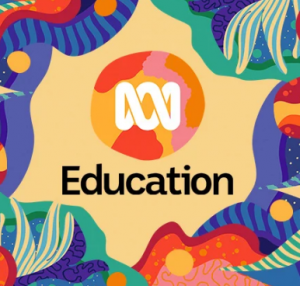
Thousands of free curriculum-linked resources for school teachers and students! Search for the topic you require and there may be activities, lesson plans or videos ready for you to use.
|
Cool Australia website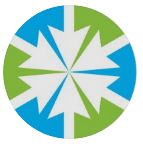
Cool Australia has been supporting teachers since 2008, providing them with learning activities and resources that make teaching and understanding real world scenarios as easy as possible. Units, lessons and activities are Australian curriculum aligned and FREE to educators and students. You can choose to follow full units of study or pick individual lessons to fit in with your curriculum. There are a multitude of resources from a variety of curriculum areas that provide content aligned with topics covered by the River Detectives program.
|
Aboriginal Victoria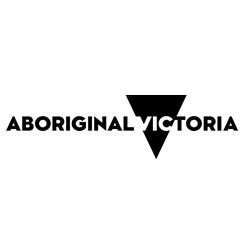
Aboriginal Victoria aims to protect Aboriginal cultural heritage, promote the advancement of Treaty and self-determination, and deliver programs to strengthen Aboriginal communities.
|
Culture Victoria: Aboriginal Culture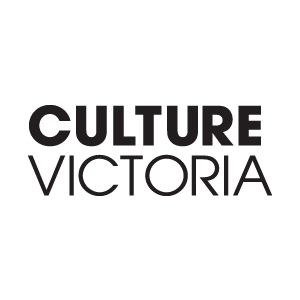
Culture Victoria is a gateway to Victoria’s cultural collections and organisations. It provides access to images, videos and stories that showcase the richness and diversity of Victoria. Type a location or waterway into the Collection search to discover content from cultural agencies and over 300 professional and community collections.
|
Victorian Aboriginal Education Association Incorporated (VAEAI)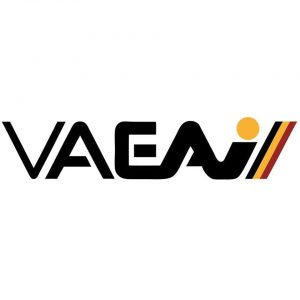
The Victorian Aboriginal Education Association Incorporated, or VAEAI, is the state-wide Aboriginal community-controlled organisation for education and training in Victoria.
|
Urban Water Cycle animations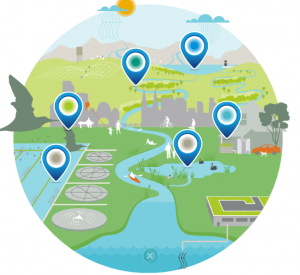
People have changed the natural water cycle; buildings and pipes take water for drinking and remove sewage and stormwater. This is the urban water cycle. In Melbourne the urban water cycle is managed by Melbourne Water. Use this interactive map to learn more or this link to explore other aspects. In north central Victoria Coliban Water manages urban water. Check out their animation with links to videos to explore topics further.
|
Drip Trip game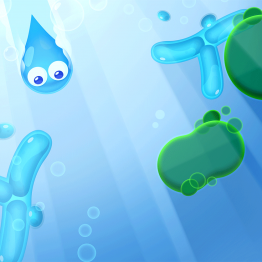
Join Drippy the raindrop on a journey across the urban water cycle, through your neighbourhood’s water pipes, sewers, drains and waterways as you head towards the bay. This Melbourne Water resource does focus on Melbourne’s urban area but will have some relevance to urban areas in any region. Suitable for ages 12 and above. Drip Trip can be played on smartphones, tablets and computers.
|
Waterbug Face Facebook page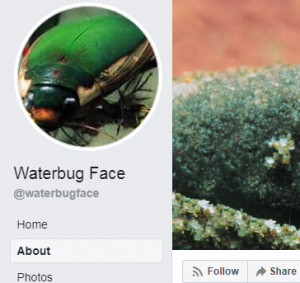
This page is run by freshwater ecologists dedicated to assisting with waterbug ID from photos. Send your image in for help with identification and check out posts for very cool photos and videos of waterbugs in action.
|
ABC Catchment Detox online game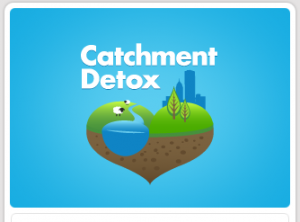
This is an online game where the player manages a virtual river catchment. The aim is to create an environmentally happy catchment with a sustainable and thriving economy.
|
Traditional Owners Map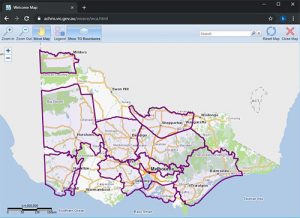
Victoria has a strong and proud Aboriginal history, and complex ownership and land stewardship systems stretching back many thousands of years. This map allows you to find out who the formally recognised Traditional Owners are for an area.
|
Who is your local Landcare group?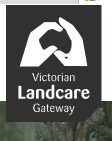
Landcare represents thousands of people across Victoria, working together to increase biodiversity and promote the sustainable management of land. Find out what your local group is doing and how your River Detectives program might be able to get involved. To find your local group visit the Landcare Gateway and search for the group nearest you by name, postcode or map location.
|
Junior Landcare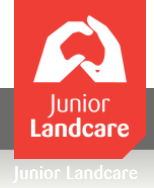
Be inspired by activity ideas linked to the Australian curriculum in the Learning Centre, at Just For Kids with great activities for home and school and check out the 25 Junior Landcare Ideas encouraging Junior Landcarers to take action to protect the world around them. There are also fantastic grant opportunities for schools, youth groups, early learning centres and landcare groups.
|
The Natural Water Cycle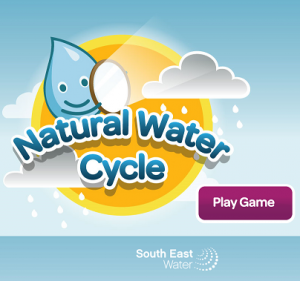
Explore three interactive online games on South East Water’s website to learn about the natural water cycle, the urban water cycle and water sources. To play, click ‘I’m a student’ – ‘play games and explore’ and then scroll down for all the links.
|
ResourceSmart Schools program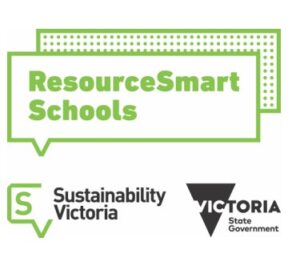
The ResourceSmart Schools and River Detectives programs work well side by side helping you achieve parts of the Water, Biodiversity and Waste modules ! Watch this webinar to learn about how the River Detectives program can help schools achieve water, biodiversity and waste actions so the two programs can work smarter, not harder! All program links are documented here. And check out how River Detectives schools fared at the 2024 ResourceSmart Schools awards!
|
